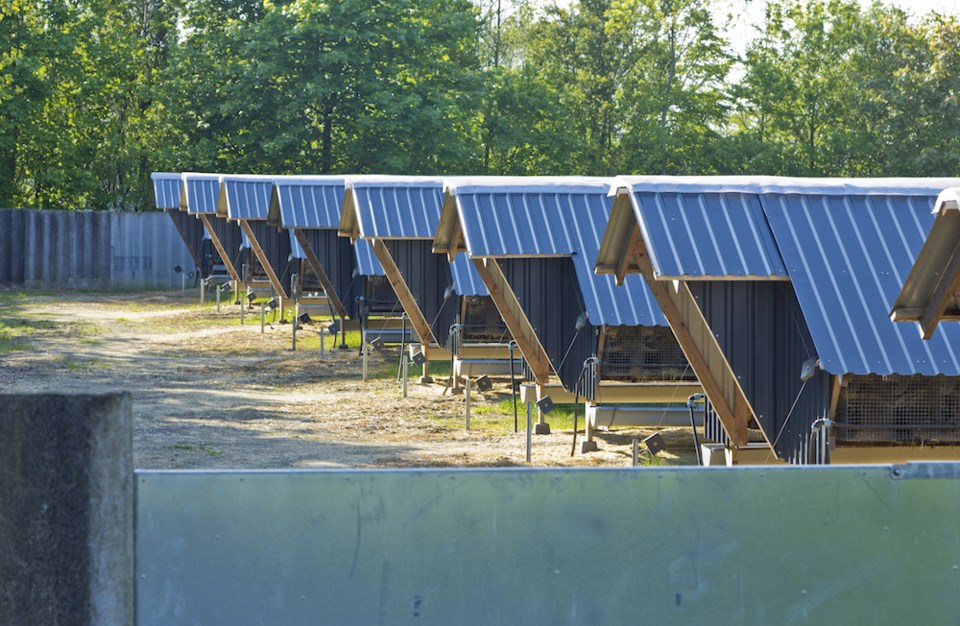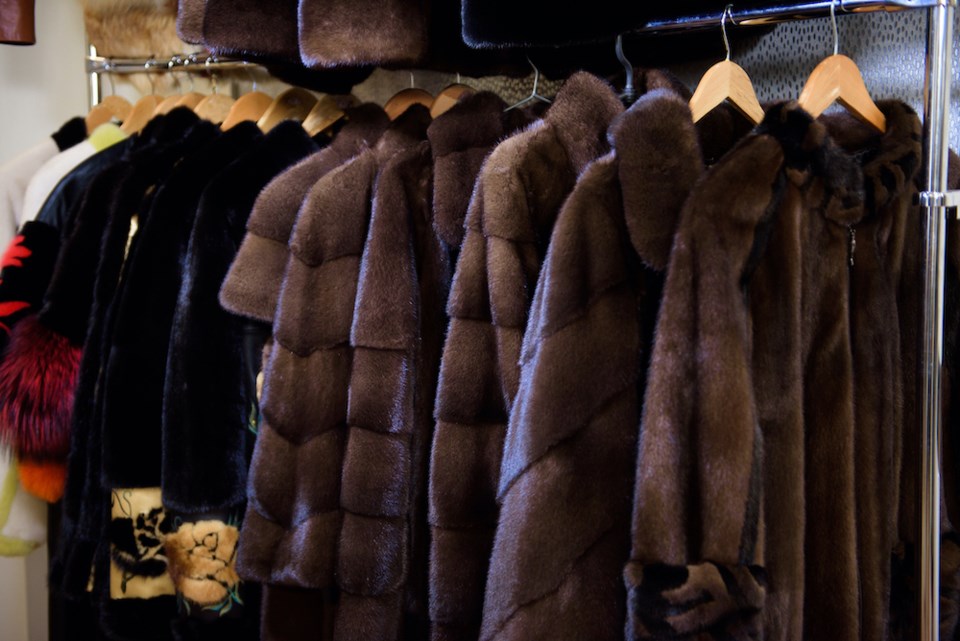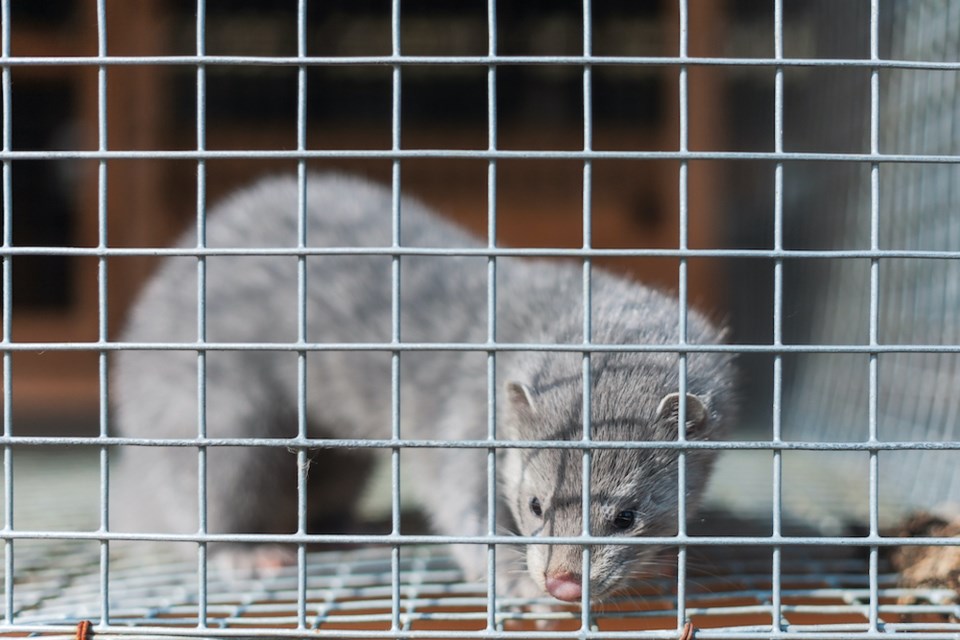Animal rights groups are raising concerns about the ethical and environmental ramifications of fur farming in Canada after an outbreak of COVID-19 was declared at a mink farm in the Fraser Valley.
Today, the B.C. Ministry of Agriculture, Food and Fisheries announced that test results from five mink samples taken from a Fraser Valley mink farm have all been confirmed positive for SARS-CoV-2, the virus that causes COVID-19 in humans.
Over the weekend, the Fraser Health Authority stated that "eight people at the site have tested positive for COVID-19. Fraser Health is screening employees, and case and contact management is ongoing."
The mink samples were consequently collected and submitted to the Canadian Food Inspection Agency’s National Centre for Foreign Animal Disease in Winnipeg. The OIE-World Organisation for Animal Health was notified under international reporting requirements.
The BCMAFF added that "the results were expected, considering the interaction between infected workers and mink on the farm," in its statement.
Testing to determine genome sequencing and the strain of the virus will continue, and results are anticipated in the coming week. Until then, B.C.’s chief veterinarian has placed the farm under a quarantine order prohibiting the movement of animals and materials from the property.
"Problematic for animals, the environment, and human health."
A plan is in place to provide feed and care to the mink during the outbreak, which the BCMAFF said: "respects the conditions of the quarantine and maintains worker and mink safety."
However, Lesley Fox, Executive Director of The Fur-Bearers--a charitable organization that works to end the commercial fur trade--tells Vancouver Is Awesome in a phone interview that this type of outbreak isn't unexpected given the conditions on fur farms.
Fox says fur farms are "problematic for animals, the environment, and human health," regardless of the type of animals being farmed.
"On one farm you have tens of thousands of individuals--and the keyword is individuals. And so, when you have one of those individuals that's sick, the capacity to spread that virus is certainly a domino effect," explains Fox.
The latest data from Statistics Canada found that there were 98 mink farms in Canada as of Dec. 2018. And B.C. had Canada's third-largest number of farms, with six.
 Photo via danefromspain / Getty Images
Photo via danefromspain / Getty ImagesFox adds that all of B.C.'s farms are located within the Fraser Valley, which is part of the problem. If one individual escapes, they may spread a virus to nearby farms or animals.
“Thousands of mink are kept in small wire cages next to each other on these farms. Under these conditions, outbreaks of COVID-19 can spread like wildfire and acquire new mutations that may change the severity of disease, treatment or susceptible host,” Dr. Jan Hajek, an infectious diseases doctor at Vancouver General Hospital said in a statement.
“A parallel epidemic or reservoir of the virus could be established in animals that could then spread back to humans at a later date and impair our own response to this pandemic. Infection control interventions like face masks for workers, and laboratory surveillance to catch outbreaks early can help reduce, but will not eliminate these risks.”
Canadian Views on Fur Farming
Recently, Research Co. polled North Americans on several issues related to animals. The support for killing animals for their fur was extremely low, with the overwhelming majority--81 per cent of Canadians and 75 per cent of Americans--opposed to killing animals for their fur.
The highest support for the practice was in Atlantic Canada (30%), followed by Saskatchewan and Manitoba (26%), Alberta (20%), Quebec (19%), Ontario (16%) and British Columbia (12%).
In Denmark, the Guardian writes how a rushed cull of minks after a massive outbreak has resulted in deceased mink "rising from their graves" after they were buried in shallow pits and their postmortem, bloated bodies rose up from the earth.
A spokesperson for the BCMAFF tells V.I.A. that it would be "premature" to determine if a cull of the animals at the mink farm in the Fraser Valley is necessary.
While there is a market for mink in Canada, the majority of the pelts are sold overseas. However, there are several salons in the Lower Mainland that offer "mink eyelashes."
"The contrast between these so-called luxury items and the suffering, and the devastation that this industry causes, couldn't be greater," Fox underscores.
 Photo via Nagaiets / Getty Images
Photo via Nagaiets / Getty ImagesThe Fur-Bearers note that with only a few mink farms remaining in British Columbia, "the time is ripe for the government to assist them to moving from the fur industry into new, green and sustainable businesses."
The Fur-Bearers have also launched a petition to end fur farming in British Columbia. Find out more information here.
--With files from Mario Canseco.




